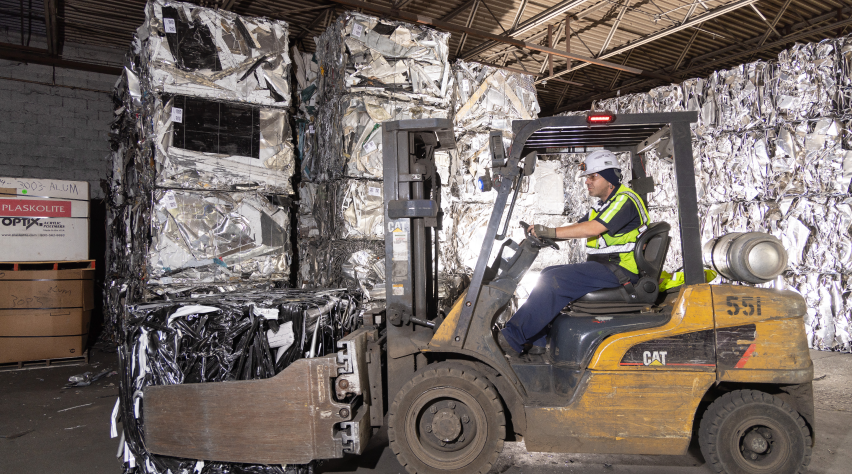Many people aren’t aware of how recycling positively affects the environment, and don’t actually know what happens to their scrap metal after it’s been recycled. Metal scrap yards and recycling plants play an integral role in ensuring reusable materials find their way back into manufacturing plants, where they can be used to make new consumer products.
What is the Recycling Process?
As we’ve said, scrap metal recycling plants are a pivotal part of a sustainable economy. Not only do they return usable materials to the consumer manufacturing process, they cut pollution, save energy, and help conserve natural resources. Scrap metal facilities also prevent millions of tons of waste from hitting landfills every year.
But, there’s a lot of work to do before the actual metal recycling occurs. As a first step, the scrap yard needs to separate the scrap metal into categories: ferrous metals and non-ferrous metals.
Ferrous Metals
In simplest terms, ferrous metal contains iron and has magnetic properties. Because of this, it’s generally much easier to sort them, as they can be shredded and magnetically separated.
Non-Ferrous Metals
It’s a little trickier to sort scrap material that consists primarily of non-ferrous metal. Usually, this is done by a visual inspection, as non-ferrous materials have distinct weight, texture, or coloring.
Cleaning Process
After it’s been separated, scrap metal is cleaned in a variety of ways, which generally uses both chemical and mechanical processes. Wire brushes, water jets, and other tools are often used to remove visible contaminants, such as grease, debris, and attached plastic or wooden materials.
But, for contaminants that are incorporated into the material, it’s necessary to use processes like chemical leaching and electrolysis, which can be used to remove impurities that are in the metal itself.
Melting Process
After the metal has been sorted and cleaned, it is typically sent to a melting facility, which helps to burn off any lingering impurities. Once melted, the metal is poured into bricks called ingots, which are shipped to manufacturers, construction sites, and other locations for reuse.
Recycle Metal and Earn Cash at Schupan
At Schupan, we actively track current scrap metal market prices to ensure that we’re offering our customers the most cash for their scrap. We know that recycled metal allows businesses to best safeguard the environment, the economy, and the communities that we live in, so it’s critical that reusable materials like metal not end up in landfills.
Every year, we help divert over a million tons of waste from landfills, allowing it to be repurposed safely and correctly. So, if you’ve been curious about what happens to scrap metal after you’ve dropped it off, trust that the team at Schupan is working diligently to guarantee that it’s not going to waste and not damaging our environment.

